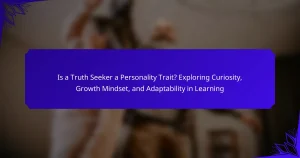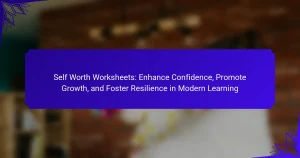Mastering modern learning techniques is essential for achieving lasting behavioural change. The Celebration of Discipline highlights intentional practices like meditation and study, which enhance focus and self-regulation. This article explores effective learning attributes, unique techniques, and the challenges faced in implementation. It also outlines structured practices to foster continuous improvement and engagement in personal growth.
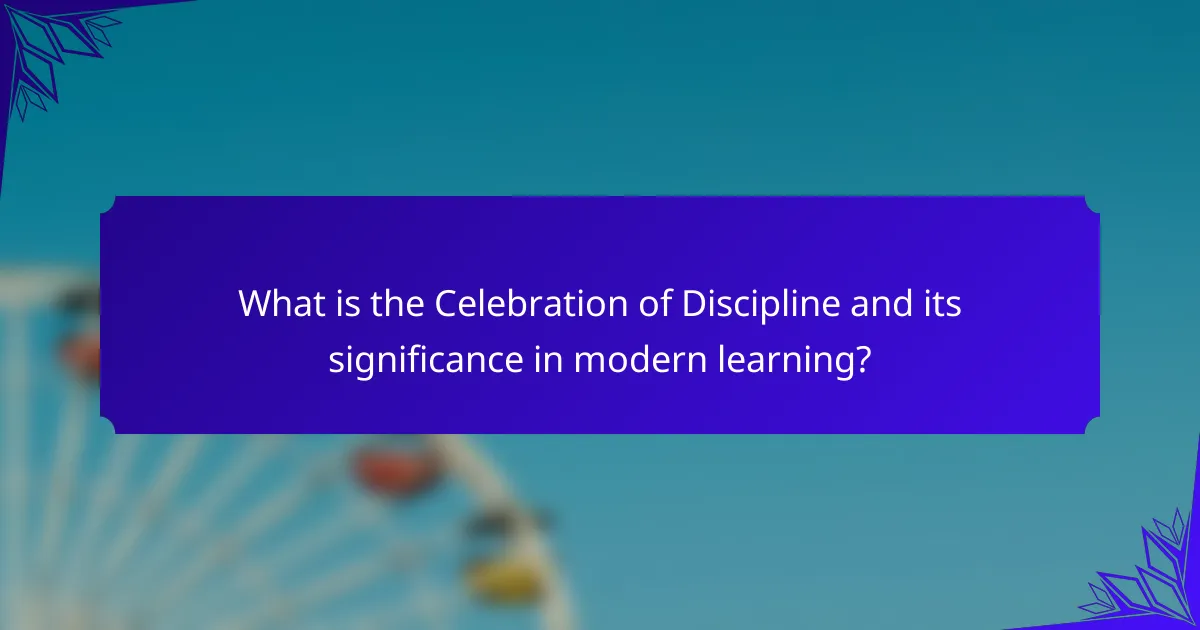
What is the Celebration of Discipline and its significance in modern learning?
The Celebration of Discipline emphasizes the importance of intentional practices for personal growth and effective learning. It advocates for techniques like meditation, study, and service, fostering behavioural change in modern education. These practices enhance focus, self-regulation, and community engagement, crucial for lifelong learning. Integrating these disciplines into curricula can significantly improve student outcomes and cultivate a culture of continuous improvement.
How does mastering learning techniques lead to lasting behavioural change?
Mastering learning techniques fosters lasting behavioural change by enhancing retention and application of knowledge. Effective methods, such as spaced repetition and active recall, encourage deeper engagement with material, leading to sustained habit formation. Research indicates that these techniques improve cognitive flexibility, enabling individuals to adapt behaviours over time. As a result, individuals experience not just temporary shifts but enduring transformations in their routines and mindsets.
What are the core principles of the Celebration of Discipline?
The core principles of the Celebration of Discipline focus on spiritual growth through practices like meditation, prayer, fasting, and study. These disciplines foster a deeper connection with oneself and others, promoting lasting behavioural change. They emphasize the importance of inward reflection and communal engagement. By mastering these techniques, individuals can cultivate a more disciplined and fulfilling life.
How do these principles apply to learning and conditioning?
The principles of “Celebration of Discipline” enhance learning and conditioning through structured techniques. These techniques foster lasting behavioural change by promoting self-discipline and intentional practice. Key attributes include the importance of routine, accountability, and reflection. For example, establishing a consistent learning schedule can significantly improve retention and mastery of new skills. As a result, individuals experience more effective conditioning and personal growth through disciplined approaches.

What are the universal attributes of effective learning techniques?
Effective learning techniques share universal attributes that enhance retention and application. Key attributes include active engagement, feedback mechanisms, adaptability, and goal-oriented strategies. Active engagement fosters deeper understanding through participation. Feedback mechanisms provide insights for improvement, while adaptability allows learners to modify approaches based on effectiveness. Goal-oriented strategies ensure focus and direction, leading to lasting behavioural change.
How do reinforcement and feedback enhance learning outcomes?
Reinforcement and feedback significantly enhance learning outcomes by promoting engagement and retention. Positive reinforcement encourages learners to repeat desired behaviours, while constructive feedback helps identify areas for improvement. These techniques create a supportive environment that fosters growth and mastery of skills. Research indicates that timely feedback can increase learning retention rates by up to 20%. Moreover, reinforcement strategies, such as gamification, can lead to a 30% improvement in learner motivation. Implementing these methods within modern learning frameworks facilitates lasting behavioural change.
What role does motivation play in behavioural change?
Motivation is crucial for initiating and sustaining behavioural change. It influences the commitment to new habits and the persistence in overcoming obstacles. High motivation enhances the likelihood of embracing modern learning techniques, leading to lasting transformation. Additionally, intrinsic motivation fosters deeper engagement, making the learning process more meaningful and effective.
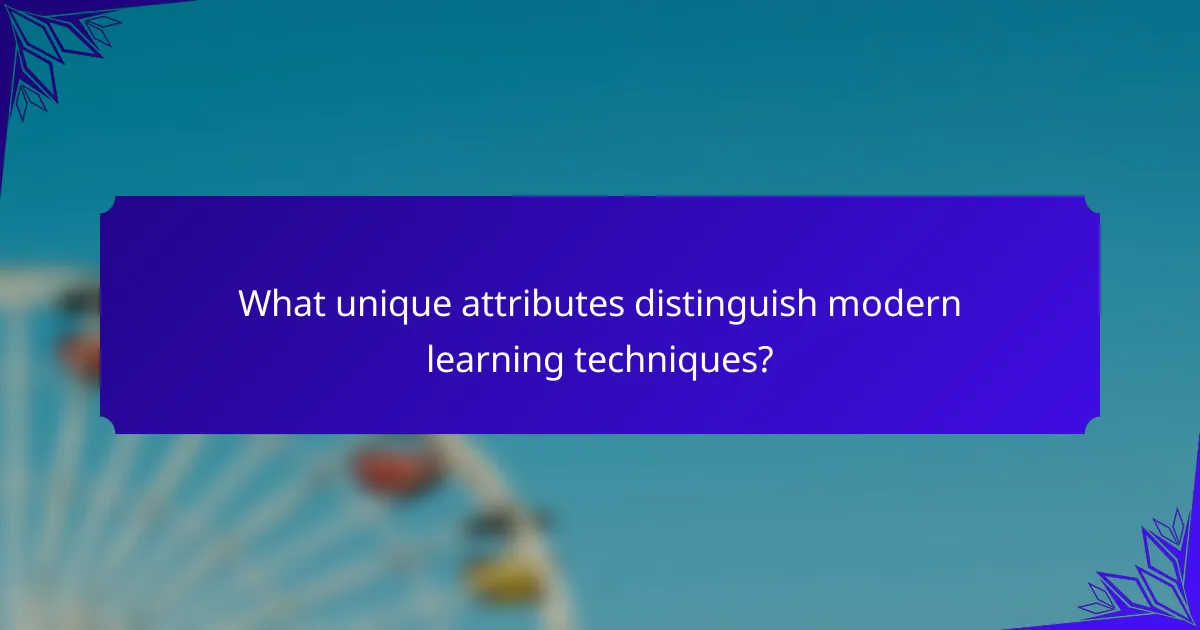
What unique attributes distinguish modern learning techniques?
Modern learning techniques are distinguished by their adaptability, interactivity, and emphasis on lifelong engagement. Key unique attributes include personalized learning paths, integration of technology, and collaborative environments. Personalized learning tailors experiences to individual needs, enhancing retention. Technology integration, through tools like AI and virtual reality, enriches the learning experience. Collaborative environments foster peer-to-peer interaction, promoting deeper understanding and motivation. These attributes collectively support lasting behavioural change by making learning more relevant and effective.
How does technology influence contemporary learning methods?
Technology significantly enhances contemporary learning methods by enabling personalized and interactive experiences. Digital platforms facilitate access to diverse resources, fostering engagement and collaboration among learners. Innovative tools like artificial intelligence and virtual reality create immersive environments that cater to individual learning styles. Moreover, technology supports real-time feedback, allowing for immediate adjustments in teaching strategies, which leads to more effective behavioural change.
What are the benefits of digital learning tools?
Digital learning tools enhance engagement, personalize education, and facilitate access to resources. They promote interactive learning experiences, which lead to better retention of information. Additionally, these tools support diverse learning styles, accommodating visual, auditory, and kinesthetic learners. As a result, digital learning fosters a more inclusive educational environment, driving lasting behavioural change.
How do personalized learning experiences impact engagement?
Personalized learning experiences significantly enhance engagement by tailoring educational content to individual needs. This approach fosters a deeper connection between learners and material, promoting motivation and retention. Studies show that personalized techniques can increase student participation by up to 50%, highlighting their effectiveness in creating meaningful learning environments. Furthermore, personalization addresses unique learning styles, making the experience more relevant and impactful.
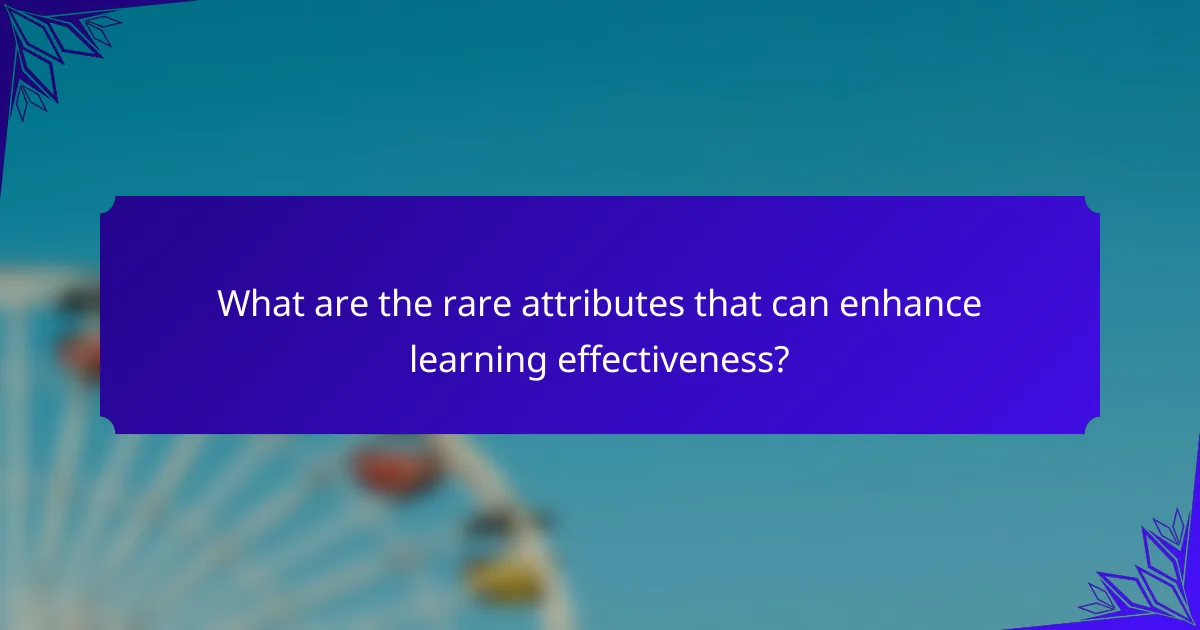
What are the rare attributes that can enhance learning effectiveness?
Rare attributes that can enhance learning effectiveness include personalized feedback, real-world application, emotional engagement, social interaction, adaptive learning technologies, and intrinsic motivation. These attributes foster deeper understanding and retention, driving lasting behavioural change.
What innovative approaches are emerging in the field of learning and conditioning?
Innovative approaches in learning and conditioning focus on personalized, technology-driven methods. Techniques such as gamification enhance engagement, while data analytics provide insights into learning patterns. Adaptive learning systems tailor content to individual needs, increasing retention rates. Collaborative tools foster peer interaction, promoting social learning. These strategies collectively support lasting behavioural change.
How can interdisciplinary methods foster deeper understanding?
Interdisciplinary methods enhance understanding by integrating diverse perspectives and techniques. This approach fosters critical thinking and encourages innovative problem-solving. For example, combining insights from psychology, sociology, and education can lead to more effective learning strategies. As a result, learners develop a holistic view, improving retention and application of knowledge.
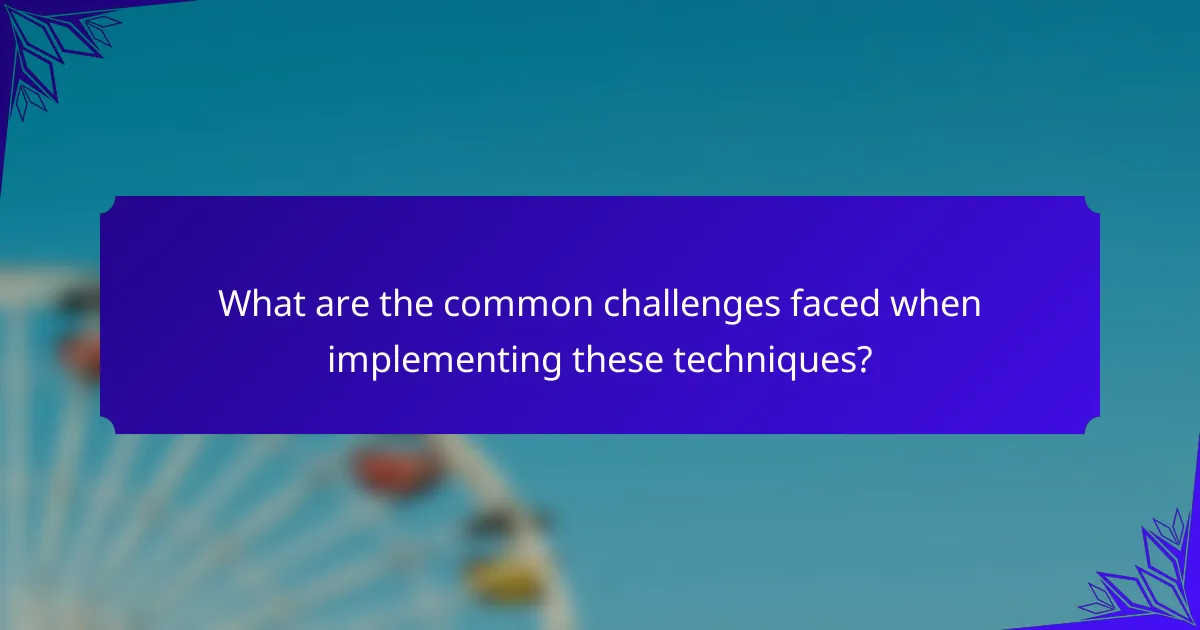
What are the common challenges faced when implementing these techniques?
Implementing modern learning techniques often faces challenges such as resistance to change, lack of resources, and insufficient training. These barriers can hinder behavioural change and the effectiveness of the techniques. Resistance to change is a common psychological barrier; individuals may be reluctant to adopt new methods. Lack of resources, including time and funding, can limit the ability to implement these techniques effectively. Furthermore, insufficient training can lead to misunderstandings and ineffective application of the techniques, reducing their potential impact. Addressing these challenges is crucial for successful implementation and lasting behavioural change.
How can resistance to change be overcome in learning environments?
Resistance to change in learning environments can be overcome through effective strategies. Implementing a culture of open communication fosters trust and encourages feedback. Providing consistent support and training ensures learners feel equipped to adapt. Celebrating small successes reinforces positive behaviour and motivates ongoing engagement. Utilizing collaborative learning techniques enhances peer support, making change feel more achievable.
What strategies can be employed to ensure consistency in practice?
To ensure consistency in practice, implement structured routines, regular feedback, and accountability measures. Establish clear goals and track progress over time. Encourage a supportive environment that fosters continuous learning and adaptation. Utilize techniques such as reflection and peer collaboration to reinforce behaviours.
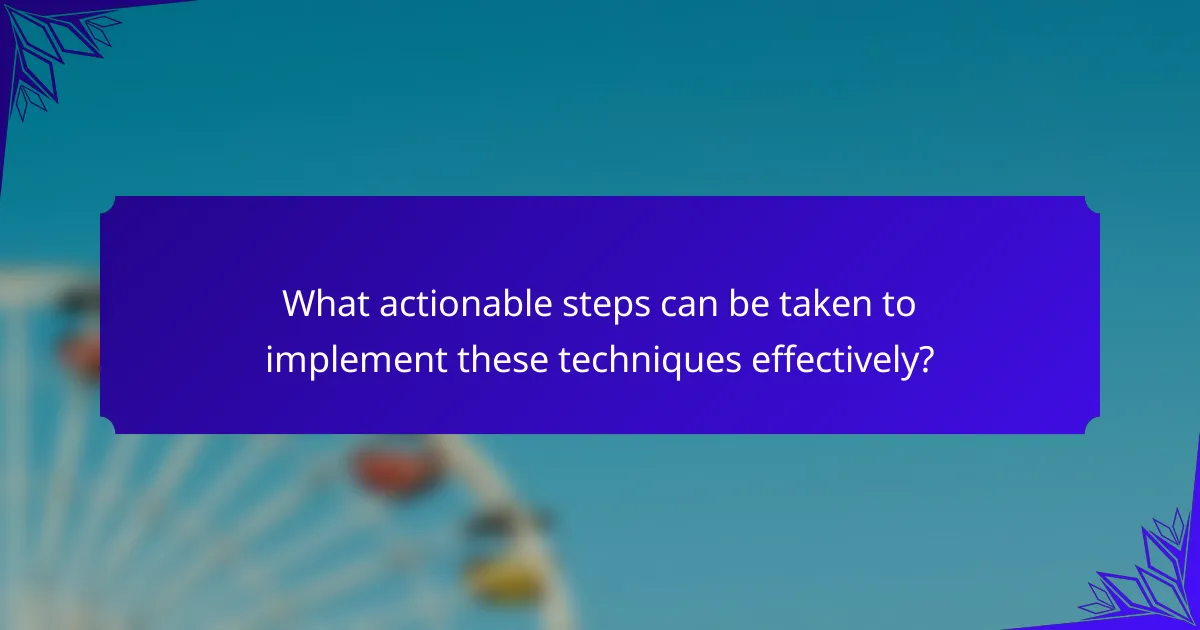
What actionable steps can be taken to implement these techniques effectively?
To implement modern learning techniques effectively, focus on structured practice, consistent feedback, and self-reflection. Establish a routine that incorporates these elements to foster lasting behavioural change.
1. Set clear goals for each learning session to focus your efforts.
2. Practice techniques regularly to build muscle memory and retention.
3. Seek feedback from peers or mentors to identify areas for improvement.
4. Reflect on your progress and adjust your strategies as needed.
5. Incorporate varied learning methods to maintain engagement and adaptability.
What best practices should be followed for optimal learning outcomes?
To achieve optimal learning outcomes, follow structured techniques that promote discipline and engagement. Incorporate active learning strategies, such as group discussions and hands-on projects, to enhance retention and understanding. Emphasize reflection and self-assessment to foster behavioural change. Utilize spaced repetition for information reinforcement, ensuring concepts are revisited over time. Set clear, achievable goals to maintain motivation and track progress.
What common mistakes should be avoided in the learning process?
To maximize learning effectiveness, avoid common mistakes like multitasking, neglecting breaks, and failing to set specific goals. These pitfalls hinder focus and retention. Prioritize dedicated study periods, incorporate regular pauses, and establish clear, achievable objectives to enhance the learning process.
How can one continuously improve their learning and conditioning strategies?
To continuously improve learning and conditioning strategies, focus on consistent practice and reflection. Regularly assess your progress and adapt techniques based on effectiveness. Incorporate diverse methods, such as active learning and spaced repetition, to enhance retention. Engage with a community for feedback and motivation.
